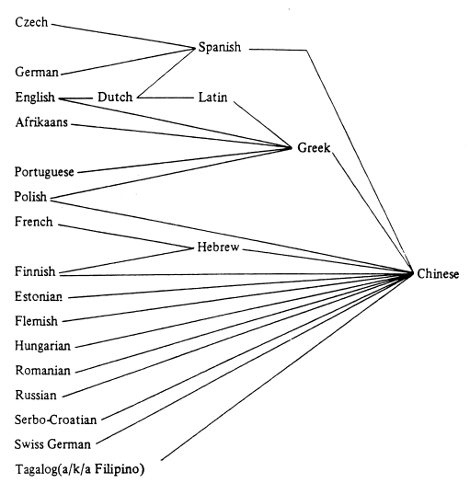“But, for my own part, it was Greek to me.”
So says Casca to Cassius in Julius Caesar, and the expression has been current in our language for 400 years. In 1978, Arnold Rosenberg of the IBM Research Center began to wonder: If we can take that as a general consensus that Greek is harder than English, then perhaps we could seek similar expressions in other languages and so discover the hardest natural language. For example, if Germans say “That seems like Spanish to me” (Das kommt mir spanisch vor), and Finns say “It is totally Hebrew to me” (Se on minulle tāyttā hepreaa), then arguably Spanish is harder than German and Hebrew is harder than Finnish. Rosenberg set about collecting such idioms, and the final picture was surprisingly clear:

“Although we have found numerous hardest languages in our quest, we must acknowledge the special position of Chinese among the hardest languages,” he concluded. “If we were backed into a corner and forced to select a single language that deserved the designation ‘hardest,’ then, in terms of popular consensus, of geographical consensus, and of cultural consensus … Chinese would be the hands-down winner.”
(Arnold L. Rosenberg, “The Hardest Natural Languages,” Lingvisticæ Investigationes, June 1979.)
